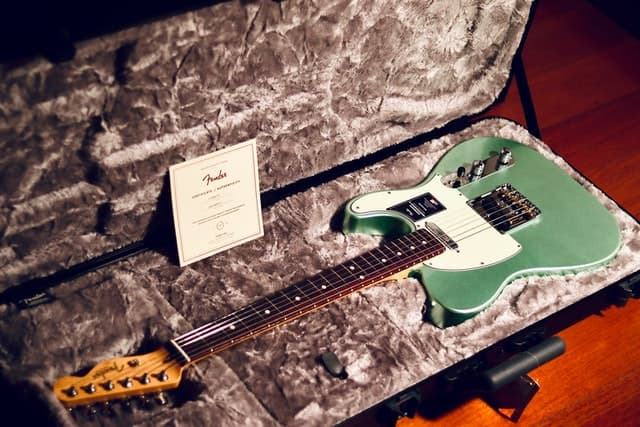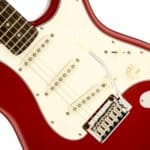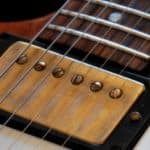If you’re like me, you didn’t know much about guitars when you bought your first one, but eventually, the question of gear and modification always comes up and it can be difficult to make informed choices.
Today we’re going to talk about guitar pickups specifically and whether your stock pickups hold up to their expensive counterparts or not.
So are stock guitar pickups bad?
Generally, it’s not just your pickups that affect the sound, if you play on a cheap amp, it will sound bad either way. That being said, pickups play a large role in the tonal quality of your guitar, and particularly on more affordable instruments, they are one of the first upgrades recommended.
While other factors affect the tone of your guitar, such as the materials of the body and the shape of its design, the pickups are usually the cheapest and easiest way to make your cheapo guitar sound professional.
It’s not to say that your stock pickups are immediately bad though. A lot of factory pickups can be pretty decent within their price range.
What defines the quality of a guitar pickup?
The quality of a guitar pickup can be defined by many factors. The following are some of the most important ones:
Ceramic vs Alnico
Magnets are made out of Ceramic or Alnico both differing in tone and chemical makeup.
Ceramic pickups are less expensive and are different in design as well as often being looked down upon by guitarists for their perceived low quality, however, they are stronger and the pickups themselves are considered higher output than alnico.
Mostly the difference in opinion between these two pickups is a subjective preference of tone.
Materials
Ceramic pickups are (obviously) made out of ceramic while alnico refers to an acronym describing the materials in these magnets. Namely: Aluminium, Nickel, and Cobalt.
Construction
Ceramic magnets are usually a slab of material attached to the bottom of the pickup, while alnico magnets are attached along the sides of the pole pieces.
Wiring
The wiring is largely the same, both being wound with strands of copper however, some unique models have differences, for example, the P90, which is an overwound single coil with Alnico magnets.
By winding more copper wire to the magnet, you get a single-coil pickup with a higher output.
What kinds of pickups do guitars usually come with?
Cheap guitars usually have ceramic pickups which are considered of lower quality, but you can find plenty of mid-range to higher-range guitars with good ceramic pickups too.
Single coil pickups
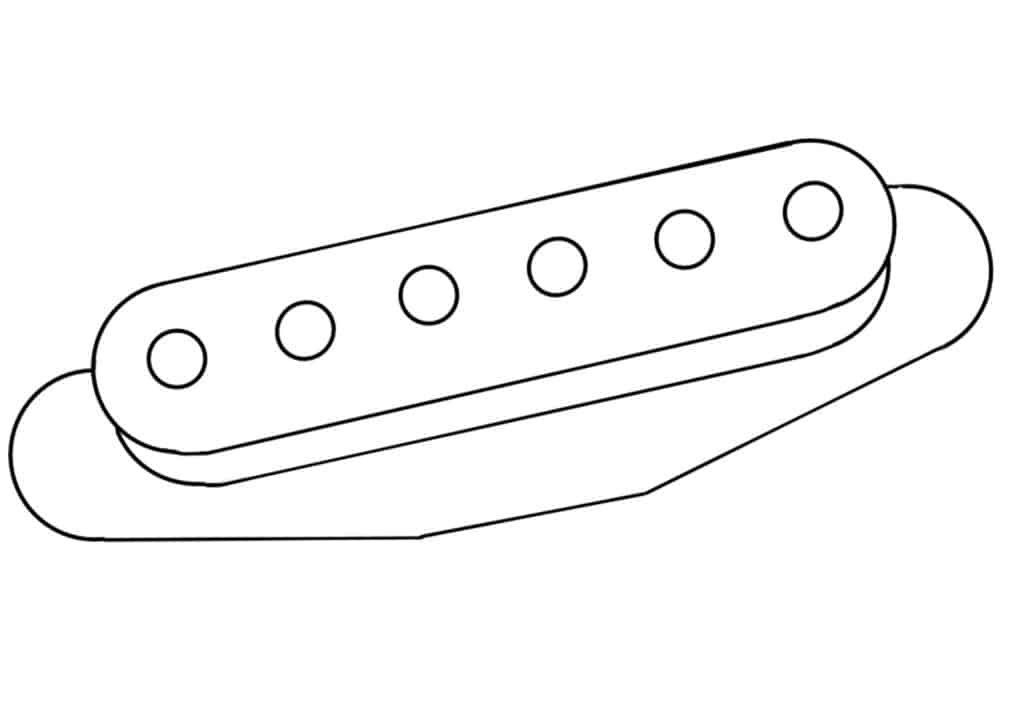
The original guitar pickups are single-coil pickups, they have a characteristic hum and are known for producing bright, treble-focused sounds that cut through mixes.
They’re very sensitive to the subtle differences in a player’s technique and a lot of amps are designed to bring out these subtleties.
Some examples of single-coil guitars are:
- Fender Stratocaster
- Fender telecaster
- Cort G100
- Ibanez AZES31
- Various Yamaha, Eastwood, and Danelectro guitars
Single coils are well known in classic rock, country, alternative rock, and treble-heavy punk rock scenes.
Humbuckers
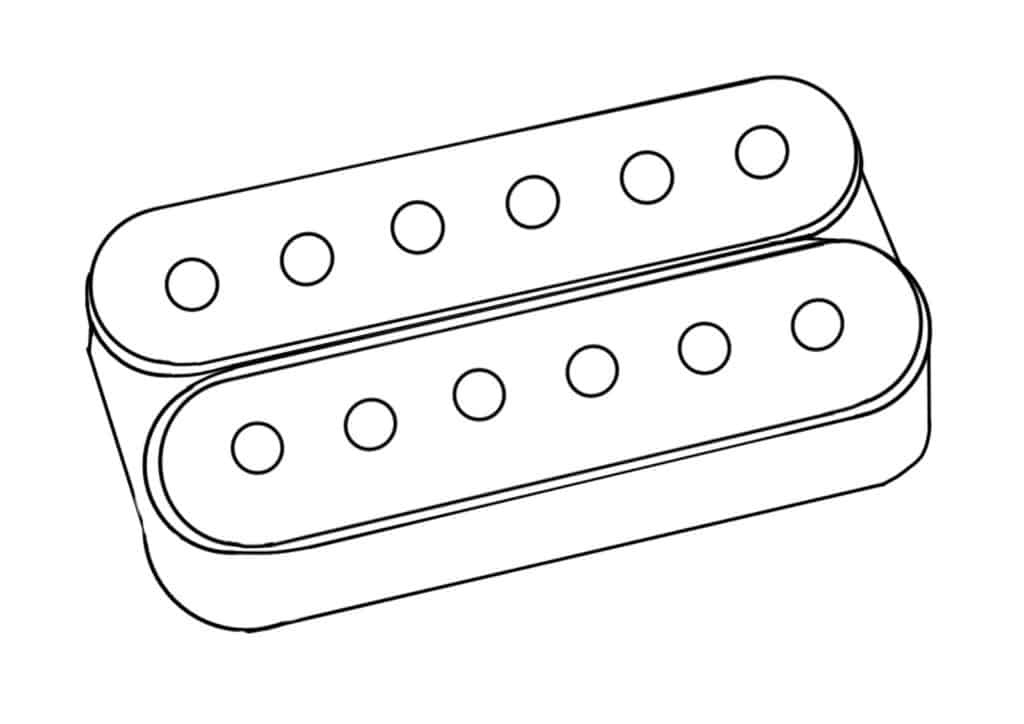
Humbuckers are built from a pair of single-coil pickups that are wound in reverse polarity, canceling out the distinctive hum produced by many single-coil pickups.
Some of the most well-known guitars built with humbucker pickups are:
- Gibson SG
- Gibson Les Paul Standard ( this one comes in variable humbucker sizes, standard, and miniature).
- And various Ibanez models.
Similar to single coils, Humbuckers are used widely among many genres, but their warm tone and strong bass frequencies make them best suited to jazz and heavy metal.
They also have a higher power output than their single-coil counterparts and do well when used with overdrive.
There are many variations on these two types of guitar pickups, such as P90s, and Mini-humbuckers, but Single-coil and Humbuckers are the two most popular types of pickups.
Are all factory/stock guitar pickups that bad?
Not at all, some mid-priced guitars come with pretty decent pickups, but often this is a component that manufacturers tend to save on.
If you buy “entry-level” or cheaper guitars, the pickups tend to be made cheaply, along with everything else, but if you’re willing to pay a bit more, you can find plenty of guitars with good quality factory pickups.
Some guitar brands known for their great sound and pickups are the obvious ones: Les Paul, Fender, Ibanez, and Yamaha, to name a few.
Some guitars also come with adjustable pickup height, allowing you to create a unique sound for yourself.
My Strat has the standard three single-coil setup, but with just a screwdriver and some testing, I improved the tonal quality of my guitar without having to do any pickup upgrades.
How to know if your guitar has factory stock pickups?
You will need to take them out and cross-check their labels with the spec sheet of your guitar.
Here’s a quick guide on removing the pickups from your guitar if you’re curious to see their model:
- First, make sure you unplug your guitar.
- Second, unwind your guitar strings so you can get to your pickups. You can loosen them enough to push them out of the way if you’re not feeling like reinstalling them later, but it can become cumbersome to do it like this, so I propose you remove and stop being lazy.
- Next, you can unscrew your pickups.
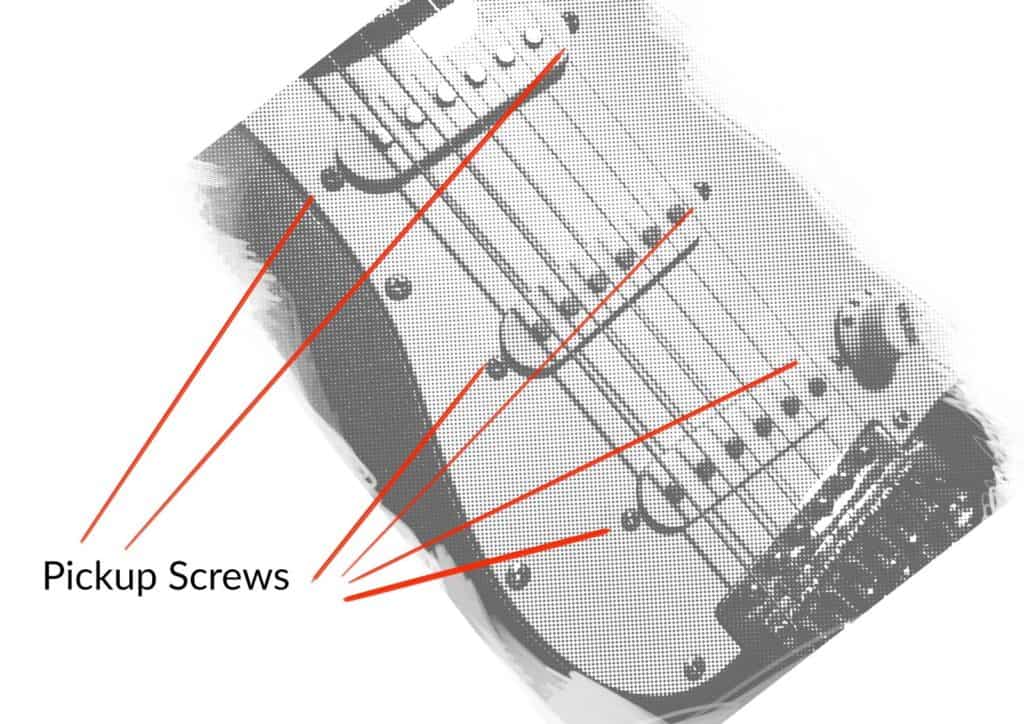
- They’ll usually pop out so you can check the back for their label, but be careful when you do this as they have wires attached.
- Once you’ve finished checking your pickup make, just do the previous steps in reverse to put them back.
If you’re unsure about removing your pickups, another option is just to google your guitar make and line model to see the pickups that are on your particular guitar.
Is it worth it to replace stock pickups on a new guitar?
It depends on the player and the guitar.
Pickups are an easy and impactful upgrade on cheap guitars because the cheaper options usually have audibly poor quality- they lack the finesse and refinement that you can find in better pickups.
Stock pickups can often sound tinny and lack warmth and depth.
In my opinion, it’s very worthwhile to upgrade to better pickups if you’re unhappy with the sound of your guitar.
Good pickups start at $79 and some of these are loved in the guitar world.
A great example is the Seymour Duncan JB, one of the most versatile pickups in the world.
Great for clean tone, distortion, rock, pop, metal, and more.
Buying a guitar that comes with a Duncan JB stock, often puts you over the $500 price range, usually because the rest of the guitar is of a higher quality too.
How influential are pickups to the overall tone of an electric guitar?
Some would say that pickups are the main influencer of guitar tone, I agree to an extent, but there are other factors like the amp you play off of, for example.
Pickups play a very large role in the sound of your guitar, however, especially your electric guitar.
In brief, different types of pickups are more sensitive to different sound spectrums and cut different frequencies, giving differing brightness and tone.
The position of the pickups relative to the neck also affects the sound.
Here’s a good example: I have a three single-coil strat with a pickup adjustment switch that allows me to switch between five combinations of my guitar’s pickups.
The pickups closest to the bridge pick up a lot of harmonics and give a brighter tonality, while the middle pickup gives my strings a very rounded tone, the pickup at the base of the neck of my guitar is slightly crunchy but has lost a lot of the clarity that my first pickup has.
I have two other options that combine either the neck or bridge pickup with the middle one to give a mixture of tones.
Just by playing with pickup placement, I have the option of five different tonalities, and I can get even more tonal adjustment by playing around with my pickup height and tilt (this is done by adjusting the pickup screws, pushing them either further in and away from the strings or closer to the strings, my neck pickup is at an angle to compensate for the loss in brightness).
In other words, pickups can influence things a lot.
If you’d like to go more in-depth on this topic, you can read about it here:
Can you replace the pickups on your guitar by yourself?
You can, and here’s a tutorial to check out how, but I recommend going to a guitar tech for this if you want to be on the safe side.
Most guitar shops will do this for $50-$75.

Hello there, my name is Ramiro and I’ve been playing guitar for almost 20 years. I’m obsessed with everything gear-related and I thought it might be worth sharing it. From guitars, pedals, amps, and synths to studio gear and production tips, I hope you find what I post here useful, and I’ll try my best to keep it entertaining also.

